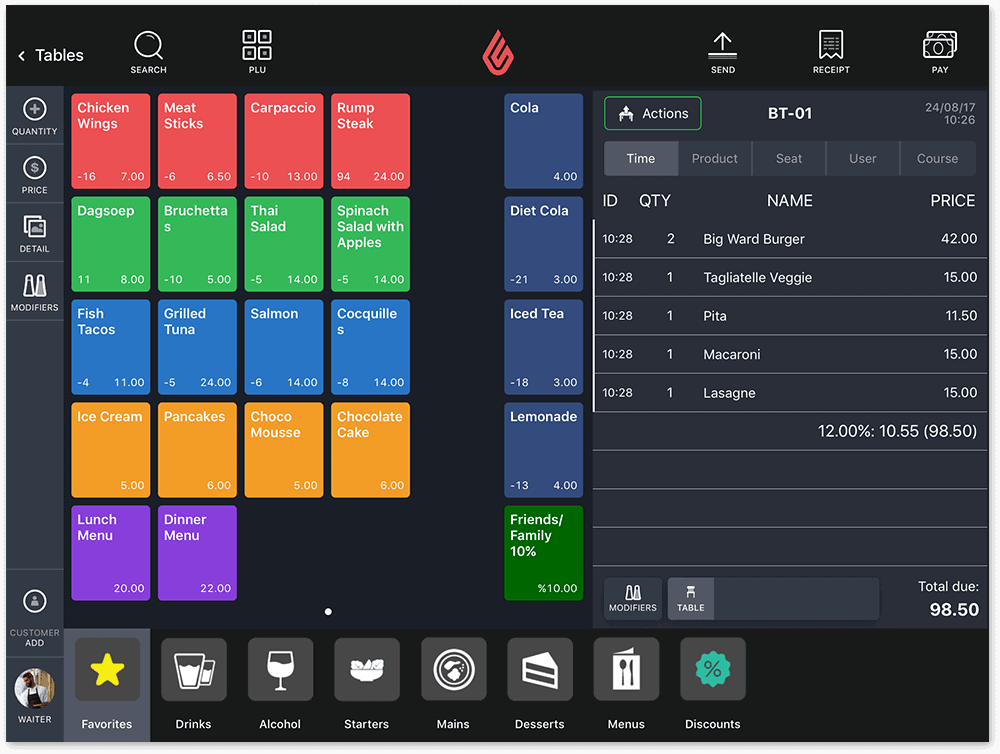In today's rapidly evolving commercial environment, the customer experience is more crucial than ever. As the emergence of technology, companies are constantly looking for innovative approaches to enhance their engagements with clients. One of the most game-changing tools in this context is the POS system. No more just a cash register, modern POS systems have evolved into advanced systems that can streamline operations, enhance client service, and offer critical insights into business metrics.
This detailed article will explore into the key aspects of POS systems, examining their development from classic cash registers to cutting-edge cloud-based technologies. We will analyze how a modern POS system can transform your business, especially in fields like retail and hospitality. From recognizing the features that boost customer experience to exploring the importance of safeguarding and melding with additional enterprise tools, this guide will serve as a blueprint for companies looking to implement or upgrade their POS technology. Regardless of whether you are a small business owner or a manager in a big organization, the insights provided in this guide will assist you maneuver the landscape of POS systems effectively.
Comprehending POS Systems
A Point of Sale system is a crucial instrument for companies, facilitating transactions between customers and merchants. At its core, a POS system includes physical devices and applications that allows businesses to conduct transactions, monitor stock, and manage client data. Traditionally, this was accomplished through traditional cash systems, but contemporary POS systems have progressed dramatically, incorporating cutting-edge technology that streamlines business processes and enhances client experiences.
The development of POS solutions has shifted from basic traditional cash systems to complex, cloud-based solutions that provide real-time information analysis and feedback. These modern systems can integrate with additional business software, such as accounting and stock management applications, creating a seamless stream of data that allows for enhanced decision-making and efficiency. As companies strive to enhance their functions, understanding how a Point of Sale solution can revolutionize their operations is critical.
In addition, with the growth of e-commerce and mobile transactions, adopting a versatile POS solution that meets the needs of both physical and online transactions has grown to be increasingly important. Businesses must stay on the cutting edge of tech trends, ensuring that their Point of Sale solutions not only meet current needs but also adapt to future needs. By leveraging cutting-edge Point of Sale technology, organizations can transform their customer experience, making transactions quicker, more secure, and easier to understand.
Transforming Companies with Modern POS Solutions
Contemporary POS solutions are at the vanguard of redefining how companies connect with their patrons and manage their operations. These sophisticated systems go beyond simple sales processing; they combine features that support inventory tracking, customer interaction management, and data analytics. The transition from legacy cash registers to innovative cloud-based systems has allowed businesses to run more effectively and respond better to client needs, consequently leading to greater satisfaction.
One of the most important ways contemporary POS solutions change organizations is through their ability to provide real-time data insights. With enhanced reporting capabilities, business owners can gather valuable data about sales patterns, consumer behaviors, and inventory levels. This information not only guides decision-making but also permits businesses to customize their promotional efforts and promotions, creating a more personalized shopping experience. By utilizing https://impos.com.au/venue/restaurant-pos-systems/ , companies can enhance their operations and boost overall customer interaction.
Moreover, the integration of mobile and contactless payment options within advanced POS technologies addresses the growing demand for ease. Consumers appreciate fast and smooth transactions, which advanced systems support with technologies like Near Field Communication and mobile wallets. This change not only accelerates the checkout process but also enhances customer trust and loyalty. By adopting innovative POS technologies, businesses can stay ahead of the competition, ensuring they fulfill the evolving expectations of their customers in a fast-paced marketplace.
Protection, Compliance, and Upkeep of POS Systems
Guaranteeing the protection of POS systems is essential in today’s quickly developing digital landscape. Businesses must implement strong security measures to safeguard confidential customer data from online dangers. This entails using EMV chip technology, which helps to minimize the risk of deceptive transactions by ensuring that data is secured and safe during the payment process. Moreover, regular updates to the POS software are necessary as they often contain updates that combat against recently found vulnerabilities.
Compliance is another critical concern for companies using POS systems, especially with regard to PCI DSS standards. These regulations are designed to safeguard cardholder information, and not complying to comply can lead to severe penalties and brand damage. Businesses must ensure that their POS systems are set up correctly to meet compliance requirements, conducting regular audits and assessments to ensure that security measures are current and effective in safeguarding customer data.
Upkeep of POS systems is just as important as their initial setup. Regular maintenance can prevent downtime and improve performance, ensuring that the system functions smoothly during peak business hours. It is advisable for businesses to establish a routine maintenance schedule that includes inspecting hardware components, monitoring software performance, and educating staff on how to address common issues. Prompt troubleshooting and professional support can mitigate risks, making sure that the POS system remains a dependable aspect of regular operations.

